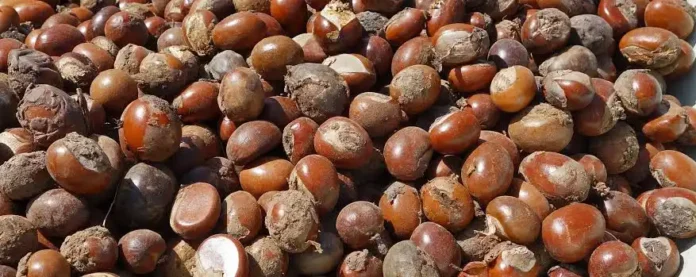President Bola Ahmed Tinubu has approved a six-month ban on the export of raw shea nuts in a bid to curb informal trade, protect local processors, and reposition Nigeria as a global leader in the shea industry.
Vice President Kashim Shettima announced the directive on Tuesday at a multi-stakeholder meeting in Abuja, describing it as a “pro-value addition policy” aimed at securing raw materials for domestic processors, creating rural jobs, and boosting annual earnings to about $300 million.
“Nigeria produces nearly 40% of global shea, yet we capture only 1% of a $6.5 billion market. This must change,” Shettima said, stressing that the move would transform the country from an exporter of raw nuts to a hub for refined shea butter, oil, and derivatives.
The Vice President announced that discussions are already underway with Brazil to secure preferential market access for Nigerian shea products within the next three months.
Agriculture Minister, Senator Abubakar Kyari, stated that the directive followed a rapid assessment indicating that Nigeria loses over 90,000 metric tonnes of raw shea annually to informal cross-border trade, while local processors operate at less than 50% capacity.
He noted that the shea industry, dominated by rural women, has the potential to generate over $300 million annually in the short term and capture a significant share of the projected $9 billion global market by 2030.
“This is about industrialisation, rural transformation, women’s empowerment, and securing Nigeria’s place in global trade,” Shettima added.



